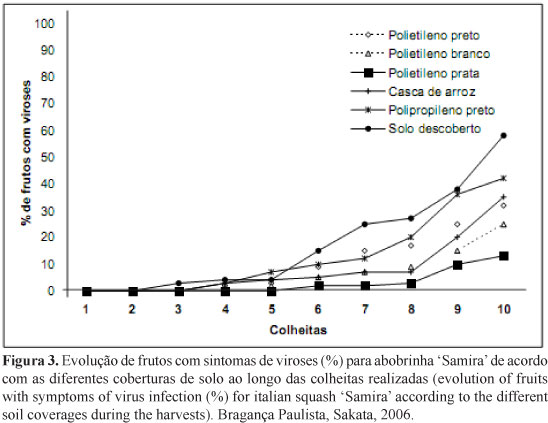The experiment was carried out in an area of Sakata Seed Sudamerica Ltda. in Bragança Paulista, Brazil, from August 22nd to October 11th, 2006, to evaluate different types of materials for soil covering and its effect on fruits with virus symptoms and on the yield of two hybrids of squash. The experimental design was randomized blocks, with four replications. The treatments followed a split-plot cheme, evaluating six soil coverings (black, silver and white polyethylene, black polypropylene, rice husk and bare soil) and two hybrids [(Novita Plus (cv. type Caserta) and Samira (cv. type Libanese)]. The technique of plastic soil covering, independently of the material used, was superior to bare soil. Among the materials the treatments using silver polyethylene promoted the highest yield and the lowest percentage of fruits with viruses in comparison to the other soil coverings. Among the hybrids, Novita Plus was superior to Samira in relation to the characteristics of fruit set, number of fruits per plants and yield, besides presenting 12% less fruits with virus symptoms in relation to Samira. For 'Novita Plus', the occurrence of virus symptoms began only at the eighth harvest on the treatments using silver and white polyethylene and rice husk. For 'Samira' the symptoms started at the second harvest on plants submitted to bare soil or black polypropylene and at fourth harvest on the other treatments.
Cucurbita pepo; mulching; virus; fruit set; number of fruits per plants





